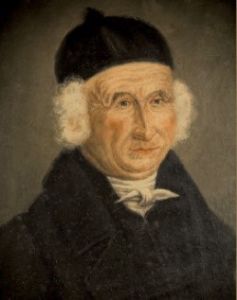A Short Tribute
Hacham Benzion Raphael Hacohen Frizzi was born in 1756 in Ostiano, in the province of Mantua, Italy. Sixteen years prior to his birth, Mantua came under Austrian rule; persecution of the Jews halted and they were accorded special privileges, including the possibility of studying in public schools. Hacham Benzion Raphael Hacohen Frizzi was the first Jew to benefit from this right. He excelled in his studies and displayed particular aptitude in sciences and mathematics. He moved to Padua, where he completed his studies in medicine. Joseph II, Emperor of Austria, visited Padua and met Hacham Benzion Raphael Hacohen Frizzi. He invited him to the University of Trieste, where his winter residence was; Hacham Benzion Raphael Hacohen Frizzi accepted the invitation.
In 1797 the French conquered Mantua and the Jews of Mantua obtained full rights as citizens. Mantua passed back and forth between France and Austria several times, and the rights of Jews improved or worsened accordingly, until 1814, when the Austrians took definitive control of the province.
In 1831 Hacham Benzion Raphael Hacohen Frizzi returned to Ostiano, where he worked as a physician and was one of the town's sages. He published numerous books during his lifetime, in several different languages, defending the Jewish faith and tradition from its detractors. His wrote books on synagogue customs, on medical science according to the Torah, on engineering and philosophy according to the Bible, on the science of music in the Book of Psalms, and on the miracles in the Torah.
He is best known for his book Petakh Eina'im, a philosophical explanation of Talmudic Midrash written in six volumes, first published in 1815 (the first three volumes), and published a second time in 1878, after his death, in its complete form.
His contemporary Hacham Samuel David Luzzato dedicated a poem of consolation to him after his daughter died in his old age. The song was published in Kinnor Na'im. Hacham Benzion Raphael Hacohen Frizzi passed away on 12 Sivan, 5604 (1844) at the age of 88.
